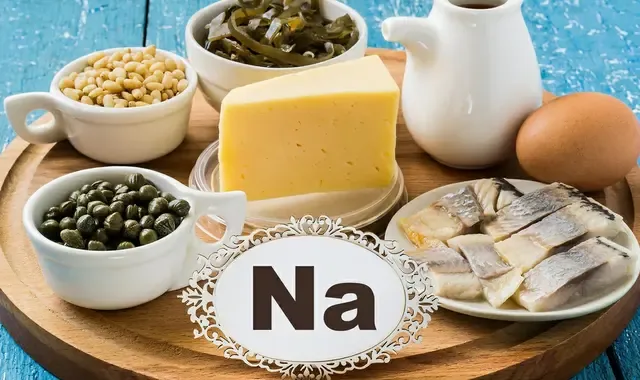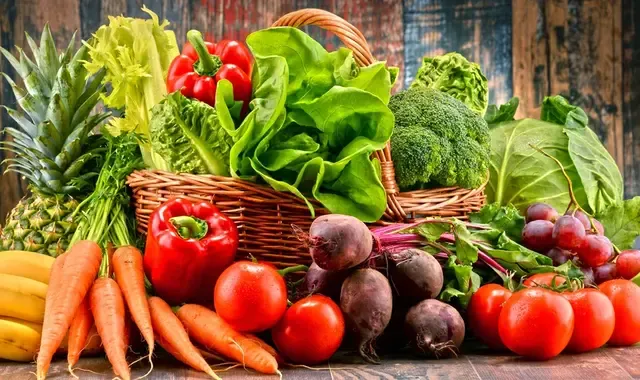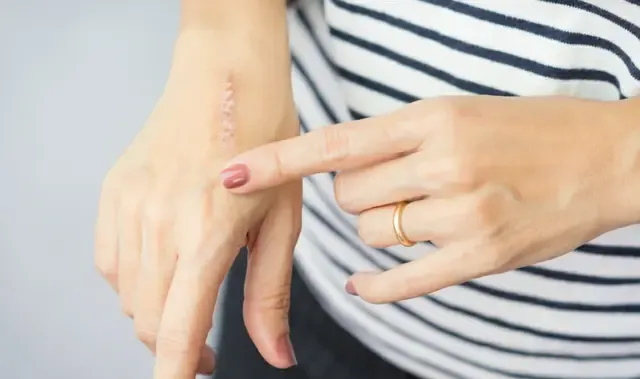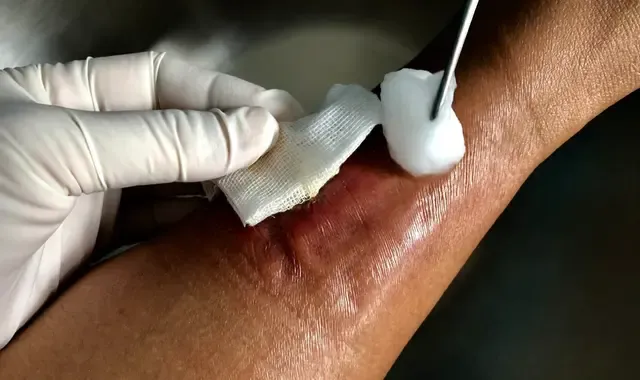When it comes to recovering from an injury, your diet plays a crucial role in the healing process.
The food you eat provides the essential nutrients needed to promote efficient wound healing and minimize scarring.
However, certain foods can disrupt the balance of nutrients and proteins in your body, hindering healing. In this article, we will explore the impact of diet on wound healing and discuss four key foods that should be avoided during this critical phase.
1. Understanding the Role of Diet in Wound Healing
Proper wound healing involves three major stages, each requiring specific nutrients to ensure quick and effective recovery with minimal scarring.
When these essential nutrients are not supplied in sufficient quantities through your diet, the body's ability to repair the wound is compromised.
On the other hand, optimizing your diet can facilitate the completion of each healing phase, leading to faster and more effective wound healing. The three stages of wound healing are:
- Hemostasis & Inflammation: During this stage, the wound is cleansed of damaged cells, bacteria, and debris. Insufficient nutrition can impede the arrival of repair cells at the site and increase the risk of infection.
- Proliferation: In this phase, the wound begins to close, and new tissue is formed to seal it. Without proper nutrition and oxygen, the newly-formed skin may be weak and prone to re-injury. Insufficient protein intake can hinder the development of new tissue.
- Maturation: This is the longest phase, where temporary collagen is replaced by a stronger weave of collagen, strengthening the wound and reducing scar tissue. Sufficient protein intake is crucial for the formation of collagen during this phase, which may last over a year.
2. Foods to Avoid During Wound Healing
To ensure optimal wound healing, it is important to avoid certain foods that can hinder skin and immune cell health. Here are four foods that should be limited or avoided during the wound-healing process:
- Sugar: Foods with a high glycemic index, such as those high in sugar and refined carbohydrates, should be restricted. Sugar can break down collagen and elastin through a process called glycation, reducing the proteins available for the healing process.
- Alcohol: Alcohol can slow down wound healing by interfering with the absorption of vital nutrients. It impairs the absorption of proteins, vitamins (A, C, D, E, K, and B), and minerals like zinc, all of which are crucial for collagen synthesis and wound healing.
- Sodium-Rich Foods: Salty foods like canned food, bacon, deli meats, hot dogs, and ham, which are high in sodium, can damage blood vessels around the wound. This can hinder nutrient delivery to the site of the wound, affecting the healing process.
- Caffeine: Excessive caffeine intake can decrease nutrient absorption and weaken the skin due to its diuretic effect, leading to decreased blood volume. As a result, insufficient nutrients reach the bloodstream and the wound, hindering the healing process.
3. Recommended Foods for Wound Healing
During the wound-healing process, it is crucial to include foods in your diet that are rich in nutrients supporting tissue repair and immune function.
Protein-rich foods like lean meat, fish, poultry, beans, lentils, and soy are essential for collagen synthesis and the development of new tissue.
Vitamin C-rich foods such as oranges, kiwi, and bell peppers promote collagen production and the formation of new blood vessels.
Incorporating fresh fruits and vegetables, especially berries, plums, and leafy greens, provides the body with important antioxidants.
These antioxidants help protect against cellular damage caused by inflammation. Additionally, staying hydrated by drinking enough water ensures adequate blood flow and hydration, supporting the wound-healing process.
4. Impact of Foods on Skin Healing
The efficiency of skin healing is closely tied to the availability of essential nutrients in the body. Consuming nutrient-dense foods, such as fresh fruits, vegetables, and proteins, during the recovery phase can significantly impact wound healing.
Conversely, excessive consumption of sugar, saturated fats, alcohol, caffeine, or processed foods can increase inflammation and impede nutrient absorption. Insufficient nutrients reaching the wound site can delay the healing process by impeding the formation of new tissue.
5. Can Foods Speed Up the Wound-Healing Process?
While a healthy diet can support the wound-healing process, it is important to note that it is not the sole factor determining the speed of recovery.
Proper wound care, consistent use of nourishing topical skin care products, and adequate rest are also crucial.
Insufficient rest can lead to decreased elastin and collagen production, impacting skin health. However, a nutrient-dense diet may potentially speed up the wound healing process compared to a less nutritious diet.
6. Can Certain Foods Help Prevent Scarring?
Although limited scientific evidence suggests that specific foods can prevent scarring after a wound has healed, maintaining a healthy diet can be beneficial for overall healing.
To prevent scarring, it is essential to take steps to avoid further injury to the area and maintain proper wound hygiene. Covering the wound with a sterile bandage, refraining from picking at scabs, and keeping the wound clean and moisturized can aid in minimizing scarring.
Your diet plays a crucial role in the wound-healing process.
By avoiding certain foods that can disrupt the balance of nutrients and proteins in your body, you can promote efficient healing and minimize scarring.
Focus on consuming a nutrient-rich diet that includes proteins, vitamin C, fresh fruits, vegetables, and plenty of water.
While a healthy diet cannot guarantee accelerated healing or complete prevention of scarring, it can significantly contribute to the overall success of the wound-healing process.
Remember to prioritize proper wound care, use nourishing topical products, and allow your body sufficient rest for optimal recovery.
FAQs
1. Why is diet important for wound healing
Diet plays a crucial role in wound healing by providing essential nutrients needed for efficient recovery and minimizing scarring.
2. What are the three stages of wound healing?
The three stages of wound healing are hemostasis and inflammation, proliferation, and maturation.
3. How does insufficient nutrition affect wound healing?
Insufficient nutrition can compromise the body's ability to repair wounds, impede the arrival of repair cells, weaken newly-formed skin, and hinder the development of new tissue.
4. Which foods should be avoided during wound healing?
During wound healing, it is recommended to limit or avoid foods high in sugar, alcohol, sodium, and caffeine, as they can hinder the healing process and impede nutrient absorption.
5. What are some recommended foods for wound healing?
Protein-rich foods, vitamin C-rich foods, fresh fruits, vegetables, and staying hydrated by drinking enough water are beneficial for wound healing.
6. How do certain foods impact skin healing?
Consuming nutrient-dense foods supports skin healing, while excessive consumption of sugar, saturated fats, alcohol, caffeine, or processed foods can increase inflammation and delay the healing process.
7. Can a proper diet speed up the wound-healing process?
While a healthy diet is beneficial, other factors such as proper wound care, use of topical products, and adequate rest are also crucial. A nutrient-rich diet may potentially speed up healing compared to a less nutritious diet.
8. Can certain foods help prevent scarring?
Limited scientific evidence suggests that specific foods can prevent scarring. However, maintaining a healthy diet and taking steps to avoid further injury to the area and maintain proper wound hygiene can aid in minimizing scarring.
9. Can a healthy diet guarantee complete prevention of scarring?
While a healthy diet cannot guarantee complete prevention of scarring, it significantly contributes to the overall success of the wound-healing process.
Proper wound care, using nourishing topical products, and allowing sufficient rest are also important factors.
10. What should I prioritize for optimal recovery?
Prioritize proper wound care, use nourishing topical products, and allow your body sufficient rest for optimal recovery. Maintain a nutrient-rich diet that includes proteins, vitamin C, fresh fruits, vegetables, and plenty of water.








